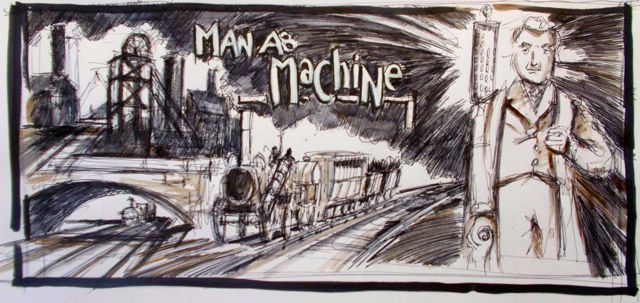There is no music and this dispatch is not from the front. However it comes from Bruce Pascoe’s Dark Emu, a book that deserves to be widely read and discussed.
“Arguing over whether the Aboriginal economy was a hunter-gatherer system or one of burgeoning agriculture is not the central issue. The crucial point is that we have never discussed it as a nation. The belief that Aboriginal people were ‘mere’ hunters-gatherers has been used as a political tool to justify dispossession. Every Land Rights application hinges on the idea that Aboriginies and Torres Strait Islander people did nothing more than collect available resources and therefore had no managed interaction with the land, that is, the Indigenous population did not own or use the land.
If we look at the evidence presented to us by the explorers and explain to our children that Aboriginal people did build houses, did build dams, did sow, irrigate and till the land, did alter the course of rivers, did sew their clothes, and did construct a system of pan-continental government that generated peace and prosperity, then it is likely we will admire and love our land all the more. Admiration and love are not sufficient in themselves but they are the foundation of a more productive interaction with the continent.
Behaving as if the First People were mere wanderers across the soil and knew nothing about how to grow and care for food resources is a piece of managerial pig-headedness. Smart business people rule nothing out, especially if the seeds of success are obvious.
The song lines of the Aboriginal and Torres Strait Islander people connected clans from one side of the country to another. The cultural, economic, genetic and artistic conduits of the song lines brought goods, art, news, ideas, technology and marriage partners to centres of exchange.
The Brewarrina fish traps were one such centre, the Lake Condah eel fishery another, Sturt’s grain fields of the Warburton River region another and Melbourne’s Botanical Gardens were the point of dispatch for the great Dreaming corroborees brought from the Australian Alps by such important philosophers as Kuller Kullup.
We can trace the green stone axes from Victoria’s Mount William quarry along the routs of that exchange; we can see elements of dance and music trading ideas back and forth across the nation. And, if we looked, we might even find that indigenous plants flourishing in new homes were first brought to those regions by the hand of black traders.
If we accept that Aboriginal people were managing their landscape and economy across cultural and geographic boundaries we need to wonder how that co-operation was wrought without resort to the physical coercion and war common in other civilisations.
In all the archaeology and all the investigations done to date there has been no time identified when those trade routes were used for wars of possession. The Grecian and Roman frescoes and ceramics feature war and torture as an element of dominion, but while individual acts of violence are depicted in Aboriginal art there is no trace of imperial warfare. This absence demands respect, and the skills employed to bring about the longest lasting pan-continental stability the world has known must be investigated because they might become Australia’s greatest export”
From Bruce Pascoe Dark Emu Magdala Books, Broome WA 2014

